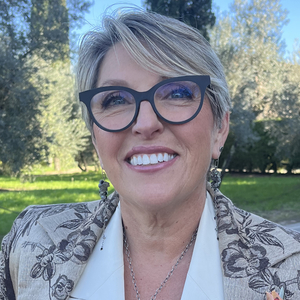These guidelines foster equitable, productive faculty-student advising relationships, supporting graduate students’ development and research. Created by a committee of faculty and students, they draw on resources from Yale GSAS, GSA, and best practices from the English Department.
- Advising Responsibilities:
- Guide students in research, academic, and professional development.
- Provide timely feedback and establish realistic schedules for progress.
- Meet regularly, with frequent meetings during the first two years.
- Support and Professionalism:
- Direct students to resources and report Title IX or discrimination concerns.
- Respect diverse backgrounds and clarify the “hidden curriculum.”
- Maintain professionalism and follow Yale policies on teacher-student relations.
- Research and Career Development:
- Acknowledge student contributions and co-author papers (students as first authors).
- Support varied career paths and help develop necessary skills.
- Lab/Group Culture:
- Create a positive, inclusive environment with clear expectations.
- Promote open communication and empower students to thrive.
- Additional Responsibilities:
- Address challenges and support student well-being.
- Respect boundaries and avoid inappropriate requests.
- Advising Relationship:
- Understand advisers’ central role while taking ownership of your academic progress.
- Treat guidance seriously but feel free to ask questions, seek clarification, or suggest alternatives.
- Collaborate with advisers to establish shared expectations for meetings and communication.
- Time Management:
- Meet deadlines for submitting work and avoid last-minute requests for meetings or support.
- Provide advisers with sufficient time for feedback and recommendation letters.
- Communication and Problem-Solving:
- Prepare for meetings and keep advisers informed of factors affecting progress.
- Seek assistance from advisers, committees, or the DGS to resolve issues.
- Diversify your mentoring network beyond your primary adviser.
- Program and Policy Adherence:
- Stay informed about departmental and university policies, including GSAS guidelines.
- Request adjustments or accommodations as needed and seek clarification when necessary.
- Professional Conduct:
- Maintain integrity in research, teaching, and scholarly work.
- Respond to constructive feedback openly and professionally.
- Contribute to a respectful, inclusive, and collaborative workplace environment.
- General Information:
- Students are assigned a faculty adviser upon admission; pairings may change as interests evolve.
- Advisers provide guidance, mentorship, and research supervision, meeting regularly, including during sabbaticals (with temporary replacements if needed).
- Advice for Incoming Students:
- Contact advisers before or soon after arrival to discuss coursework and program details.
- Advisers should meet new students early in the fall semester to plan goals.
- Key Topics to Establish Expectations:
- Communication methods, work schedules, and vacation policies.
- Time-to-degree, conference attendance, and publication goals.
- Research progress during other commitments (e.g., teaching).
- Career goals and professional development opportunities.
- Communication and Meetings:
- Meet weekly in early years or at least biweekly as needed.
- Keep records of meetings to track progress and clarify expectations.
- Meetings should be professional and equitable, not replaced by group meetings.
- Professionalism and Equity:
- Advisers should avoid favoritism and maintain fairness in resources and opportunities.
- Concerns about fairness or professionalism should be raised with the DGS.
- Minor Discourse Advisers:
- Select a minor discourse adviser and project by spring of the first year.
- Regular progress meetings (weekly, if possible) are encouraged for effective collaboration.
- Students can expect substantive feedback on proposals, documents, and publications related to the minor project.
- Advisory Committee:
- A tentative advisory committee is assigned at program start.
- Proactively contact committee members each semester during the first two years to discuss interests, project plans, and coursework.
- After qualifying exams, engage with the committee through annual required meetings.
- Leverage committee expertise to develop projects and thesis research.
- Committee Changes:
- Committee members can be changed by mutual agreement with the primary adviser.
- Notify the DGS and departmental registrar via email to update committee assignments.
- Adviser and Advisee Roles:
- Discuss work-life expectations (e.g., vacation policy) early in the program.
- Advisers should help students set boundaries and prioritize work-life balance.
- Students should feel supported in taking formal vacations and prioritizing well-being.
- Health Resources:
- Students and advisers should prioritize physical and mental health.
- Free mental health and counseling services are available through Yale Health.
- Tips for a Healthy Balance:
- Identify your peak productivity hours.
- Create a schedule that includes work and personal time.
- Take at least one day a week off from work.
- Separate work and home by keeping research materials in your office.
- Exercise regularly.
- Pursue hobbies and non-academic interests.
- Stay connected with friends, family, and mental health professionals.
- Empathy and Flexibility:
- Recognize that personal or health-related changes may affect usual expectations temporarily.
- Practice open communication to navigate these periods compassionately.
- Guaranteed Funding:
- Graduate students in the EPS department receive funding (stipend, tuition, health insurance) through program completion, assuming satisfactory progress.
- An additional $2000 in travel support is provided for the first two years.
- Additional Support:
- Students are encouraged to apply for external grants or fellowships to supplement their funding.
- Grant funds can be used for research supplies, specimens, field work, travel, and CV development.
- Grant and Fellowship Applications:
- Communicate early and frequently with advisers about application opportunities.
- Advisers help identify suitable grants and review application materials.
- Students should ask advisers to review and approve materials before submission.
- Allow at least two weeks’ notice for recommendation letters.
- Responsibilities:
- Students must inform advisers of deadlines and submit necessary information.
- Advisers should provide timely feedback and submit letters on time.
- Written Assignments and Documents:
- Students should expect feedback on written assignments, grant/fellowship applications, Ph.D. milestones, pre-proposals, discourse documents, thesis chapters, and meeting abstracts.
- Feedback Expectations:
- Discuss feedback timelines and forms with advisers in advance.
- Give at least two weeks’ notice for feedback requests on documents (e.g., pre-proposals).
- If incorporating feedback takes one week, send drafts three weeks before deadlines.
- Rights and Responsibilities:
- Students have the right to thorough feedback on proposals, discourses, manuscripts, abstracts, and drafts.
- Advisers have the right to receive documents well in advance with reasonable timelines for feedback.
- Co-Author Feedback:
- Expect feedback from all faculty co-authors on paper manuscripts and abstracts.
- Same timing guidelines apply.
- Advising Relationships:
- Constructive, supportive, and rewarding advising relationships are a priority in EPS.
- Problems may arise; it’s important to address them openly and honestly to prevent issues from escalating.
- Proactive Approach:
- Both students and faculty should be proactive in discussing challenges and seeking solutions.
- Successful relationships are characterized by openness to feedback, constructive criticism, and mutual support.
- Resources:
- The Director of Graduate Studies (DGS) is a key resource for both students and faculty facing challenges.
- Students experiencing issues with advisers are encouraged to contact the DGS for informal advice or formal mediation if needed.
- Faculty should also reach out to the DGS for support.
- Additional Support:
- The department chair, advisory committee members, and Yale Graduate School Dean’s Office can offer additional guidance.
- Peer mentoring programs (MacDougal Fellows and OGSDD Fellows) provide further support.
- Career Pathways for Graduates:
- Graduates of the EPS Ph.D. program pursue diverse careers in academia, government, the private sector, and non-profits, including roles in research institutions, faculty positions, museums, government agencies (e.g., USGS), consulting, data science, and science policy.
- Advising and Career Planning:
- Students should discuss career plans with their primary advisers and advisory committee members early in their graduate careers. Career plans may evolve; ongoing communication about aspirations is essential.
- Meetings for Guidance:
- Designated annual meetings with advisers and other mentors are recommended, especially in the later Ph.D. program.
- Students should seek additional advice from other mentors and resources, including members of advisory committees and the Yale Office of Career Strategy (OCS).
- Reach Out Early: Contact your adviser before or soon after arriving at Yale to discuss program details, coursework, and department life.
- Initial Meeting: Plan to meet with your adviser early in the fall semester, ideally before the end of the registration period, to discuss:
- Preferred communication methods (email, phone, video chat, etc.)
- Weekly work schedule expectations and handling vacation time
- Expectations for time to degree
- Conference attendance and funding
- Adviser’s role and authorship expectations in collaborative work
- Approach to authorship norms
- Number of publications expected before graduation in your subfield
- Research progress expectations during semesters with other requirements
- Interest in professional development programs (writing, teaching, outreach)
- Career goals and the adviser’s expertise in those career paths
Graduate Contacts
-
-
-
Rebecca Pocock
Registrar, Earth & Planetary Sciences

